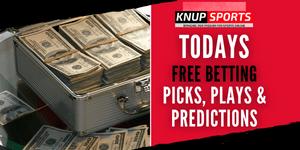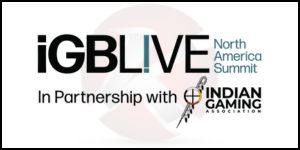BACK TO THE SPORTS BETTING GUIDE
Sports Betting Dictionary & Terminology
We get asked all the time what something means. Often times, we may be talking sports betting terms that you don’t understand. Let’s take some time to understand some of the terms used in the sports betting world.
Most Common Terms
Offshore Sportsbook
An online place you can place a sports bet at. Examples include MyBookie, Intertops, and Bookmaker. The offline equivalent to this is a bookie.
Line or Odds
When you see these terms it is referring to the odds, points, and money lines that are being posted along with the sporting events point spread.
Juice or Vig / Vigorish
The bookmaker gets a commission and that is his juice. Sometimes this is also referred to as vig or vigorish. It is the actual cash amount that gives them a definitive advantage against the sports bettor.
Point Spread or Spread Bet
These terms come from the bookmaker and it refers to the number of points that are given to an underdog or the predicted point differential in the two team’s final score. as an example, if the points spread is for New England +4 at Philadelphia, the bettor puts their bet on the New England team to win or lose by less than 4 points.
Money Line or Moneyline Bet
When you see odds that are listed with a dollar sign that is the money line for the contest. This informs the person placing the bet how much they must risk winning a $100 if you decide to bet the favorite in the game. It may also allow you to bet the underdog and tells you what reward you will receive for winning the bet. Remember that in money line betting, there are no point spreads.
Over/Under or Total Bet
The Over/Under is a frequently used bet that tells you how many points the bookmaker will be scored by the two teams that are playing each other. The gambler decides whether the total points scored will go over or under the total set by the bookmaker.
Futures / Future Bet
A future bet is a wager you place on an event taking place “in the future”. For instance, you may want to place a bet on who will win the NBA Championship, or who will win the Super Bowl, or who will win the MVP in the upcoming baseball season. These are all examples of “Future Bets”.
You can “lock in” to the odds you get at the time of the bet, regardless of what happens during the season. For example, if you bet the Cleveland Cavs +600 to win it all, but then halfway through they trade for another superstar and it moves the odds to +300. You STILL get the +600 odds that you already locked into with your future bet.
You want to try and find the highest value bets at the lowest prices. One thing to keep in mind about making future bets — your money is locked up with that bet until the event finishes.
Parlay Bet
This type of bet allows you to bet several things at the same time on the same ticket. You may wager straight up bets along with proposition bets and points spreads all on the same bet. In order to win a parlay bet, you have to hit ALL of them correctly in order to receive a payout. The larger the parlay bet, the larger the payout.
Teaser Bet
The bookmakers like to tease the gambling community from time-to-time and they use a teaser bet to enhance the chance a bet will be made by slightly adjusting in the gambler’s favor. In order to win, the gambler must pick each game correctly to receive a payoff and it gets bigger with the more teams you decide to wager.
Less Common Sports Betting Terms
Action
This has a couple of different meanings. First, a valid or active wager means you have “action”. If you have “no action” that would be the bet has been canceled for some reason. Action refers to a bet being “active”. Secondly, some people refer to the total amount of bets they have made as their “action”. For example, if you have 5 bets paced for $100 a piece, you have $500 in total action.
Arbitrage
Arbitrage is when you find yourself in a betting situation that you win no matter what. Typically you would place opposite bets at two different sportsbooks. Regardless of which side wins, you are guaranteed to win a small amount.
For example, say the Cardinals are playing the Cubs. If you bet on the Cardinals early in the day as +125 underdogs at Bookmaker. But then for some reason, you find later that BetNow has the Cubs listed as +115 underdogs and you place that bet there.
Now, no matter who wins — you win! Make sense? This is often referred to as an “arb” and is nearly impossible to find unless you spend your life searching and monitoring these situations.
Bookie
A person that takes your bet. This term is typically used more in the “offline” sports betting market. The online equivalent to a bookie is a sportsbook.
Buying Points
Most online sportsbooks allow you to buy points. Meaning, you can move the point spread or total closer to a number you want. You typically would buy a .5 point to get the spread off of a half number. When you buy points, you will have to pay extra “juice” on that bet.
For example, the standard line is Cowboys -3.5 -110 on Sunday. You opt to buy the half point so your bet is the Cowboys -3 but you have to pay -120 juice. You bought the half point but pay more commission if you lose the bet.
This is also referred to as “buying the hook” sometimes.
Dime
A slang term for betting $1,000. Many bigger bettors will say, “I got a dime on this game” meaning they have bet $1,000 on that game. This is more often used in offline betting situations, but you may run across it online as well.
Hedge
When a gambler hedges a bet, they are betting the opposite side of a bet they have already placed in hopes of softening any blow they may receive from losing the original bet.
Newspaper Line
Simply put, these are betting odds you may find in a daily newspaper and quite often they are unreliable for the betting public to use and may be labeled for entertainment purposes only.
No Action
When you see this there are a few things that have happened. The game may have already started or the game has to be rescheduled for a later date.
Off the Board
If your chosen bookmaker won’t accept a wager on an event, it is rendered “off the board”. There will be no bets taken on this event from this bookmaker.
Running Bad / Running Good
This refers to whether the person betting has been on a hot streak of winning and they are known as “running good” or if they are on a losing streak they are now referred to as “running bad”.
Scratch
This term describes the cancellation or withdrawal of a bet.
Sharp
The bookmakers are good and this term is for a professional gambler that is smart in their betting. They are known expert handicappers and money winners.
Square
People who are new to betting or ignorant on how to bet or win a bet are known in the industry as a square.
Tout
This is an expert gambler that gives away their picks for free or may charge for the inside information. The most consistent touts typically charge for the information they provide on events.
BACK TO THE SPORTS BETTING GUIDE






